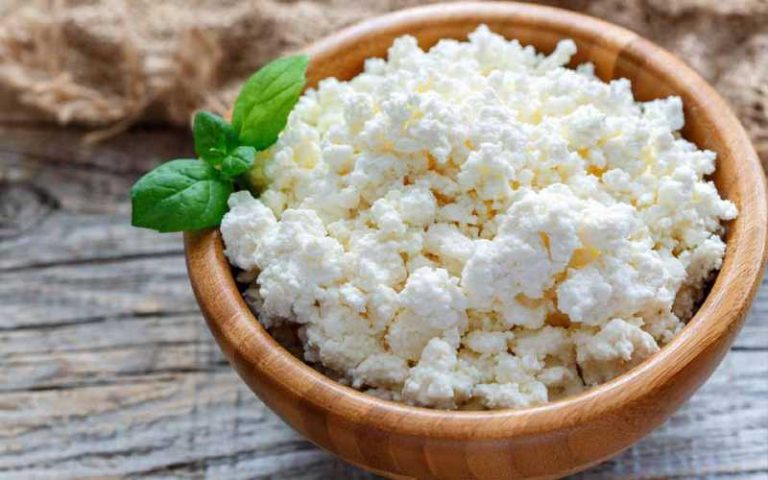Can Dogs Eat Cottage Cheese?
I bet some of you are wondering whether or not dogs can eat cottage cheese.
In this article you’ll find out the health benefits of cottage cheese, as well as the potential dangers.
You’ll also read additional reasons as to why cottage cheese is actually very healthy for dogs.
Can Dogs Eat Cottage Cheese?
Contents
This is a difficult topic to answer since each individual dog will react differently. Some people may be lactose intolerant, while others may not. However, feeding your dog cottage cheese in moderation is a safe choice.
Cottage cheese may be a very healthy treat for dogs, but it has about 10 percent milk fat which is too much for most dogs.
It is best to watch your dog closely and limit their intake of cottage cheese, especially during times of fasting.
Until you know for certain how your dog will respond , it is best not to include cottage cheese in their regular diet.
Cottage cheese has far lower quantities of lactose than milk does, making it a much healthier choice for dogs with lactose intolerance.
However, smaller dogs, younger dogs, and older dogs may have difficulty digesting cottage cheese.
If your dog is lactose intolerant, they are more liable to experience digestive upset from eating cottage cheese.
Is Cottage Cheese Good for Dogs?
Because of the high protein content and high digestibility, these digestively challenged dogs may not require as much food as their normal counterparts.
Some people who are unable to effectively digest dairy products may experience extreme discomfort. In addition, lactose intolerant dogs may also be unable to digest dairy products.
It is vital to remember that in these cases, the dog or puppy is already not eating well, so it is important to provide the proper nutrition they require.
However, it is important to watch for signs of intolerance and digestive problems, such as diarrhea or constipation, as these can indicate the presence of intolerance to product.
Permanent dietary adjustments should be made in cooperation with an expert.
Is Cottage Cheese Bad For Dogs?
When compared to other milk alternatives, cottage cheese has a modest amount of protein, along with fat and carbohydrates.
Having excessive amounts of salt in your diet plan can lead to a buildup of fluid and sodium, also known as edema.
It can increase the severity of the condition, causing you to experience a great deal of discomfort.
If you want to give it to your pooch, adhere to the guidelines set forth by the veterinarian.
In any case, it is doubtful that your canine friend will be worse off if you limit how much cottage cheese you give her.
It may also include a lot of protein, which can be used as fuel during exercise.
The use of highly calorific foods and beverages may result not only in a sedentary lifestyle but also an increased risk for weight gain and obesity.
When combined with a lack of exercise, this can lead to serious health problems, such as diabetes and osteoarthritis.
A “low-fat” version will enable your dog to snack on treats while controlling their calorie intake.
Can Puppies Eat Cottage Cheese?
Even so, it’s a good idea to start small when introducing your puppy to new foods.
Some dogs react to foods right away, while others may not. If your dog does exhibit any of the symptoms, stop feeding them cottage cheese immediately.
If symptoms are minor, come back to cottage cheese in a week or two. If your dog shows any of the following symptoms, stop feeding them cottage cheese immediately.
If symptoms are minor, come back to cottage cheese in a week or two. If they are not having any gastrointestinal response, feel free give them more.
Dogs metabolize lactose more quickly than humans do. It is safe to feed your canine some cottage cheese.
After a few weeks, they can eat a little bit every day.
Can Dogs Eat Cottage Cheese Daily?
Dogs may safely consume cottage cheese on a daily basis. As long as a healthy weight is maintained, cottage cheese is a healthy and tasty food.
Cottage cheese should not account for more than 10% of your pet’s daily calorie intake.
Commercial cottage cheese is loaded with sugar and that’s not good for your dog’s health. If your dog has a condition that requires low sugar consumption, cottage cheese should be avoided.
This translates to around a 13 pound dog eating no more than 1/4 of a cup of cottage cheese per day.
Those suffering from diarrhea or other stomach problems should avoid giving cottage cheese to their pets.
Always consult your veterinarian before attempting any homemade or homemade treatment for your pet.
Health Benefits Of Eating Cottage Cheese
There are presently no scientific research papers discussing the health benefits or risks of feeding dogs cheese.
Some cheese brands may include probiotics, which are sure to make your dog crave this treat even more.
A number of canine studies have demonstrated the benefits of probiotics, though more research is needed to confirm whether this applies to dogs.
It’s important to remember that probiotics tend to have a short shelf life, so only mix up a batch that your pet will consume within a week or so.
In the event that you are considering include probiotics in your dog’s food, it is advised that you consult your veterinarian. Some dogs may have sensitivity to certain probiotics.
How Much Can You Give Your Dog?
Despite the fact that cottage cheese offers several health advantages for canines, it is still not the best option in an emergency situation.
It should only be used in certain situations, such as to treat your dog’s diarrhea or constipation. If possible, keep it to an amount that won’t upset your dog’s regular diet.
For example, medium-sized breeds should only be fed cottage cheese if their food is otherwise lacking.
Keep cottage cheese as a special treat or for days when your pet is not consuming other food types.
Because cottage cheese is high in fat, you should monitor your dog’s weight carefully. If your dog is overweight and you feed them cottage cheese every day, this may help them lose a few kilos.
Can Dogs Eat Cottage Cheese With Pineapple?
Pineapple has a high concentration of bromelain, an enzyme found in the body.
A laboratory study found that bromelain is effective in reducing inflammation and increasing joint flexibility. Butter is a healthy alternative to cream cheese or cottage cheese.
Butter is a reasonable substitute for cottage cheese. If you are concerned about your dog’s sugar intake, choose cottage cheese.
Dogs may safely consume pineapple when it’s cut into small pieces.
You should be cautious about feeding him pineapple if you’re feeding him other dairy products like yogurt or milk.
Cottage cheese and pineapple are known to help dogs with digestion. It also can help prevent constipation.
Because it has a lot of fat, it also might cause pancreatitis.
Also Read: Can French Bulldogs Eat Cheese?
Conclusion
Cottage cheese is a nutritious treat you can use as a meal supplement for your dog.
This tasty food provides protein and calcium that help your dog maintain strong bones and muscles as well as healthy vital organs and nervous systems.
Mixing cottage cheese with a protein or carbohydrate food will help your dog maintain healthy blood sugar levels.
Also, if they are on a bland diet, then giving them a treat like this once in a while may not be a great idea.
Cottage cheese is usually made from cow’s milk, and it can make your dog sick if it’s given to them too often.
Feeding your dog should be done sparingly since excess nutrients can result in health issues. Dogs should be fed about 20% of their total diet in cottage cheese.




